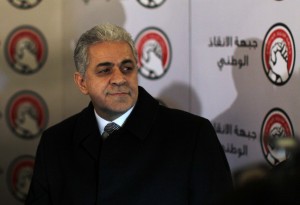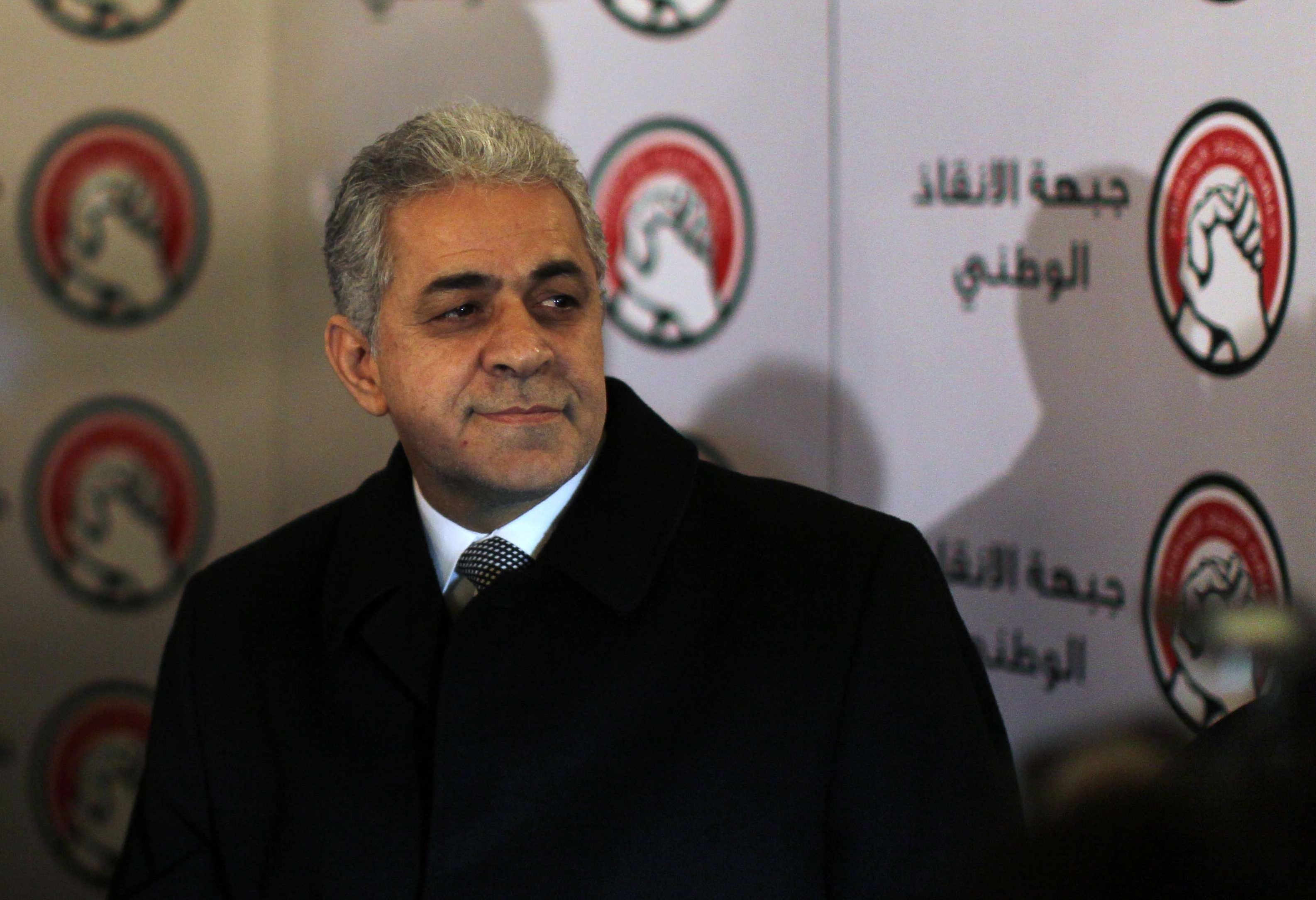
(AFP Photo)
By: Lamia Nabil
The Popular Current launched its first economic conference on Sunday under the title “Saving the Egyptian economy, towards an alternative programme”.
Former presidential candidate and popular current leader Hamdeen Sabahy said during his keynote address said that the conference was “a response to repeated criticism that the opposition lacks vision and political and economic solutions”.
He added that developing applicable economic alternatives can help Egypt better handle the economic situation. “The conference also sends a clear message that the reality extends to all energies and insights, targeted prospects”, and attempting to “get over past bitterness”.
Sabahy also said that Egypt needed “to broaden its horizons for dialogue in all areas”.
Writer Mohmed Hassanein Heikal, who attended the conference, said he “wished to participate in Egypt’s better future”. He added that “we have history to help us” and that Egypt is currently undergoing “a critical situation with circumstances where vision is absent, as she [Egypt] needs combined efforts to bypass this critical phase”.
The first panel included Law professor at Ain Shams University Hossam Eissa, former Minister of Social Solidarity Gouda Abdel Khalek, and Political Economy Professor at the American University in Cairo Nadia Ramsis Farag.
The panelists said Egypt was going through a critical economic situation, especially after the revolution, and the deterioration of the Egyptian economy came as result of the absence of vision by successive governments.
“We will not issue an alternative vision for the Egyptian economy, as there currently is no vision,” Gouda said. “We will instead try to issue a new vision for Egypt after the revolution.”
“The current economic performance is poor and there is no vision,” said Ramsis Farag. “After the revolution, the International Republican Institute (IRI) did a survey to find out what Egyptians want from the revolution. The result was that 63% thought that the economic situation was very bad; 80% predicted improvements in the economic situation during a year; while 63% claimed that the economic crisis was mainly due to unemployment.”
The panelists also affirmed that the political situation and the current policies are leading to the deterioration of Egyptian economic growth, and that indirect taxation is the greatest danger facing the economy, especially through its effect on the poor.”
“The seriousness of the economic situation lies in the lack of national cohesion” said Hossam, “the economic project must be a national project”.




